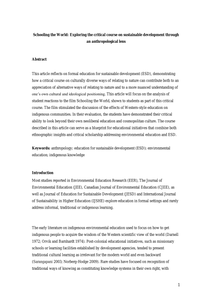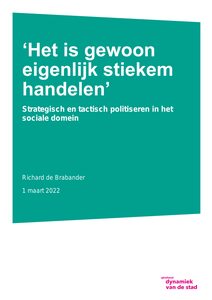Skyler White is a protagonist in the top-ranking television series Breaking Bad. She is also one of the most hated characters on television. This paper focuses on how the character of Skyler and Anna Gunn – the actor that plays her – are turned into a ‘composite celebrity’ in audience discussions. This is achieved by analysing threads on the social news website Reddit that specifically discuss Skyler. We discovered three main speaking positions: ‘savvy’ viewing; moral realism; and public shaming. This type of audience research may help further discussion on how celebrity culture is supported by neoliberal changes in the public sphere and caught up in the devaluation of professionalism and professional status – which, as will be shown, has especially dire consequences for professional women. Breaking Bad showcases predominantly masculine narratives. The derogation of its key female character therefore does not come as a surprise. However, a feminist defence of both the character and the actor – although a minority perspective – is also voiced. This article reveals how the interlinking fields of celebrity gossip and television criticism are a space of vibrant and sometimes frightening discussion in which a neo-conservative gender agenda is simultaneously asserted and contested
LINK
In the wake of neo-liberal informed global trends to set performance standards and intensify accountability, the Dutch government aimed for ‘raising standards for basic skills’. While the implementation of literacy standards was hardly noticed, the introduction of numeracy standards caused a major backlash in secondary schools, which ended in a failed introduction of a high stakes test. How can these major differences be explained? Inspired by Foucault’s governmentality concept a theoretical framework is developed to allow for detailed empirical research on steering processes in complex systems in which many actors are involved in educational decision-making. A mixed-methods multiple embedded case-study was conducted comprising nine school boards and fifteen secondary schools. Analyses unveil processes of responsibilisation, normalisation and emerging dividing practices. Literacy standards reinforced responsibilities of Dutch language teachers; for numeracy, school leadership created entirely new roles and responsibilities for teachers. Literacy standards were incorporated in an already used instrument which made implementation both subtle and inevitable. For numeracy, schools distinguished students by risk of not passing the new test affirming the disciplinary nature of schools in the process. While little changed to address teachers main concerns about students’ literacy skills, the failed introduction of the numeracy test usurped most resources.
DOCUMENT

Neoliberal discourse often conceptualizes nature in relation to its market utility and economic development. This article will address the role of metaphors in shaping neoliberal discourse in business education. The aim of this article is to reveal reasoning patterns about environmental problems and economic development in students of sustainable business minor. The case study described in this article involves business students at The Hague University in The Netherlands. This case study aimed to explore a shift in student understanding of environmental problems and economic development before and after the intervention. The results suggest that critical curriculum can inform students about the alternative conceptions as well as instruct them about potential solutions to the sustainability challenges. The article culminates with the argument that without goal-oriented education for sustainability; neoliberal education may not permit transcendence from unsustainable practices. https://doi.org/10.3390/su6117496 https://www.linkedin.com/in/helenkopnina/
MULTIFILE

This article reflects on formal education for sustainable development (ESD), demonstrating how critical course on culturally diverse ways of relating to nature can contribute both to an appreciation of alternative ways of relating to nature and to a more nuanced understanding of one's own cultural and ideological positioning. This article will focus on the analysis of student reactions to the film Schooling the World, shown to students as part of this critical course. The film stimulated the discussion of the effects of Western-style education on indigenous communities. In their evaluation, the students have demonstrated their critical ability to look beyond their own neoliberal education and cosmopolitan culture. The course described in this article can serve as a blueprint for educational initiatives that combine both ethnographic insights and critical scholarship addressing environmental education and ESD. https://doi.org/10.1016/j.ijer.2013.10.002 https://www.linkedin.com/in/helenkopnina/
MULTIFILE

Using political discourse analysis, this book examines the extent to which the salient approaches of previous leadership generations have translated into present day policies shepherded in by Xi Jinping. On the strategic political level, the book includes comparisons of China's recent leadership periods with a focus on Xi Jinping's era, and contains examples of whether and how specific topics and tactics reoccur across generations. The state development strategy section then goes on to include chapters on shaping China’s strategic narratives, neoliberal discourse within state developmentalism, and keyword evolution. The practical policies part looks at the issues of re-education, health, class, and ethnicity, analysing how the leaders talk about China’s poor, frame the representations of megaprojects on social media, and discursively display diplomatic strength. As a study of the rule of Xi Jinping and the rhetoric of the contemporary Chinese political system, this book will be of huge interest to students and scholars of Chinese politics and political science more broadly.
LINK
The emergence of organic planning practices in the Netherlands introduces new, non-conventional, local actors initiating bottom-up urban developments. Dissatisfied with conventional practices and using opportunities during the 2008 financial crisis, these actors aim to create social value, thus challenging prevailing institutions. Intrigued by such actors becoming more present and influential in urban planning and development processes, we aim to identify who they are. We use social entrepreneurship and niche formation theories to analyse and identify three types of social entrepreneurs. The first are early pioneers, adopting roles of a developer and end-user, but lacking position and power to realize goals. Secondly, by acting as boundary spanners and niche entrepreneurs, they evolve towards consolidated third sector organizations in the position to realize developments. A third type are intermediate agents facilitating developments as boundary spanners and policy entrepreneurs, without pursuing urban development themselves but aiming at realizing broader policy goals. Our general typology provides a rich picture of actors involved in bottom-up urban developments by applying theories from domains of innovation management and business transition management to urban planning and development studies. It shows that the social entrepreneurs in bottom-up urban development can be considered the result of social innovation, but this social innovation is set within a neoliberal context, and in many cases passively or actively conditioned by states and markets.
MULTIFILE

Empowerment has become a hegemonic moral horizon and key modality of governance across the global South and the global North. Whether in the realm of development or in that of welfare and urban governance, a broad range of actors, from local NGOs to social professionals and international donors, now envision the empowerment of local communities as a crucial condition and means for achieving good governance and social justice (Cruikshank 1999; Rose 1996). Anthropologists and development scholars – including ourselves – often find themselves ambivalently positioned in relation to such projects of empowerment. In this essay, we turn to the hesitancies and experimental practices of our research interlocuters in two urban settings saturated by a ‘will to empower’ (Cruikshank 1999). During ten months in the year 2017, Anick followed the everyday practices of family workers in three community centers and neighborhood associations in the northeast of Paris, who were tasked to help working-class and migrant-background parents regain confidence and agency vis-à-vis state institutions. Like the parents with whom they worked, many of these family workers hailed from the banlieue themselves and were of migrant backgrounds. Naomi worked with 15 male former gang leaders in Mombasa (Kenya) who sought to reform themselves to escape police violence. Naomi’s interlocutors were between 16 and 28 years old and worked closely with their friend Hasso during 2019 and 2022. In this period, Naomi conducted eight months of ethnographic fieldwork with these young men and with Hasso, during which she observed their weekly meetings and the individual lives of several group members, and she conducted life history interviews with five of them. These two cases thus figure actors who were differently positioned in relation to the will to empower.
DOCUMENT

Through the commodification of nature, the framing of the environment as a ‘natural resource’ or ‘ecosystem service’ has become increasingly prominent in international environmental governance. The economic capture approach is promoted by international organizations such as the United Nations Environmental Program (UNEP) through Reducing Emissions from Deforestation and Forest Degradation (REDD), Payments for Ecosystem Services (PES) and The Economics of Ecosystems and Biodiversity (TEEB). This paper will inquire as to how forest protection is related to issues of social and ecological justice, exploring whether forest exploitation based on the top-down managerial model fosters an unequitable distribution of resources. Both top-down and community-based approaches to forest protection will be critically examined and a more inclusive ethical framework to forest protection will be offered. The findings of this examination indicate the need for a renewed focus on existing examples of good practice in addressing both social and ecological need, as well as the necessity to address the less comfortable problem of where compromise appears less possible. The conclusion argues for the need to consider ecological justice as an important aspect of more socially orientated environmental justice for forest protection. https://doi.org/10.1017/S0376892916000436 https://www.linkedin.com/in/helenkopnina/
MULTIFILE

Since the early work on defining and analyzing resilience in domains such as engineering, ecology and psychology, the concept has gained significant traction in many fields of research and practice. It has also become a very powerful justification for various policy goals in the water sector, evident in terms like flood resilience, river resilience, and water resilience. At the same time, a substantial body of literature has developed that questions the resilience concept's systems ontology, natural science roots and alleged conservatism, and criticizes resilience thinking for not addressing power issues. In this study, we review these critiques with the aim to develop a framework for power-sensitive resilience analysis. We build on the three faces of power to conceptualize the power to define resilience. We structure our discussion of the relevant literature into five questions that need to be reflected upon when applying the resilience concept to social–hydrological systems. These questions address: (a) resilience of what, (b) resilience at what scale, (c) resilience to what, (d) resilience for what purpose, and (e) resilience for whom; and the implications of the political choices involved in defining these parameters for resilience building or analysis. Explicitly considering these questions enables making political choices explicit in order to support negotiation or contestation on how resilience is defined and used.
DOCUMENT

Dit document maakt deel uit van een tweejarig postonderzoek dat Richard de Brabander van oktober 2019-2021 deed naar de ethisch-politieke dimensie van empowerment. Dit onderzoek sluit aan bij de toenemende aandacht voor en discussie over de maatschappelijke opgave van het sociaal werk en politiserend werken, een discussie die vanaf de jaren negentig nagenoeg was verstomd.
DOCUMENT
